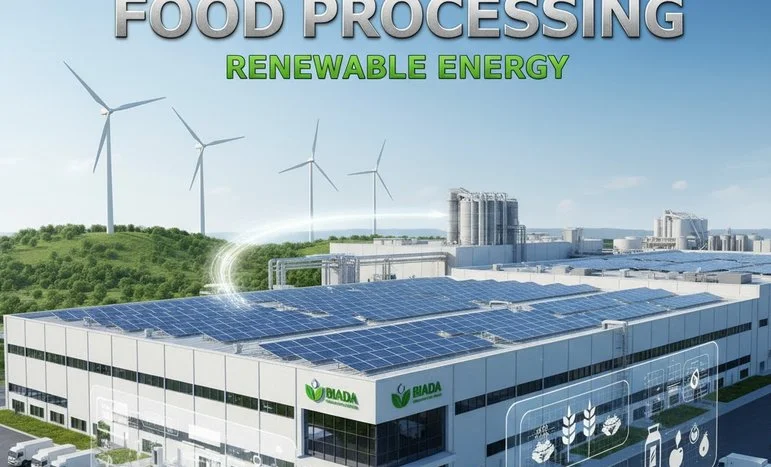
BIADA Allocates Plots for Food Processing and Renewable Energy Units
Introduction
The Bhutan Industrial and Development Authority (BIADA) has recently allocated industrial plots to establish food processing and renewable energy units, signaling a strong commitment to economic growth and sustainable development. These initiatives are expected to generate employment opportunities, promote industrial diversification, and support the region’s environmental goals.
By focusing on food processing and renewable energy, BIADA aims to integrate modern industrial practices with sustainability, fostering innovation and long-term economic resilience.
Allocation Details
Food Processing Units
The allocated plots for food processing industries will support:
- Local agro-based manufacturing
- Value addition to agricultural produce
- Creation of new supply chains and market opportunities
These units are expected to enhance the local economy by generating jobs and promoting entrepreneurship.
Renewable Energy Units
BIADA’s renewable energy allocations will encourage:
- Solar, wind, and biomass-based power projects
- Development of clean energy infrastructure
- Reduction of carbon footprint and promotion of sustainable industrial practices
These projects align with broader national initiatives to adopt green technologies and meet energy sustainability targets.
Economic and Social Benefits
Job Creation and Industrial Growth
The development of these units will:
- Create employment in both skilled and semi-skilled sectors
- Encourage ancillary industries and services
- Boost regional economic activity and revenue
Environmental Advantages
Renewable energy projects will contribute to:
- Lower greenhouse gas emissions
- Sustainable energy production for industrial and community use
- Promotion of eco-friendly industrial practices
The integration of sustainable and industrial development demonstrates BIADA’s commitment to balanced economic growth.
Expert and Industry Response
Industry analysts note that BIADA’s initiative will strengthen the industrial ecosystem while supporting innovation in clean technologies. Mr. Tashi Dorji, an industrial consultant, remarks:
“Allocating plots for food processing and renewable energy is a strategic move. It addresses economic diversification, environmental sustainability, and local employment simultaneously.”
Local entrepreneurs have welcomed the opportunity to establish modern, sustainable units, highlighting potential for long-term growth and profitability.
BIADA’s allocation of industrial plots for food processing and renewable energy units reflects a proactive approach to economic development and sustainability. By fostering innovation, creating jobs, and promoting clean energy, these initiatives are expected to significantly contribute to the region’s industrial and environmental progress.
As these projects take shape, they are likely to serve as models for integrated economic and sustainable industrial development, encouraging further investment and innovation in the region.
We appreciate that not everyone can afford to pay for Views right now. That’s why we choose to keep our journalism open for everyone. If this is you, please continue to read for free.
But if you can, can we count on your support at this perilous time? Here are three good reasons to make the choice to fund us today.
1. Our quality, investigative journalism is a scrutinising force.
2. We are independent and have no billionaire owner controlling what we do, so your money directly powers our reporting.
3. It doesn’t cost much, and takes less time than it took to read this message.
Choose to support open, independent journalism on a monthly basis. Thank you.



















